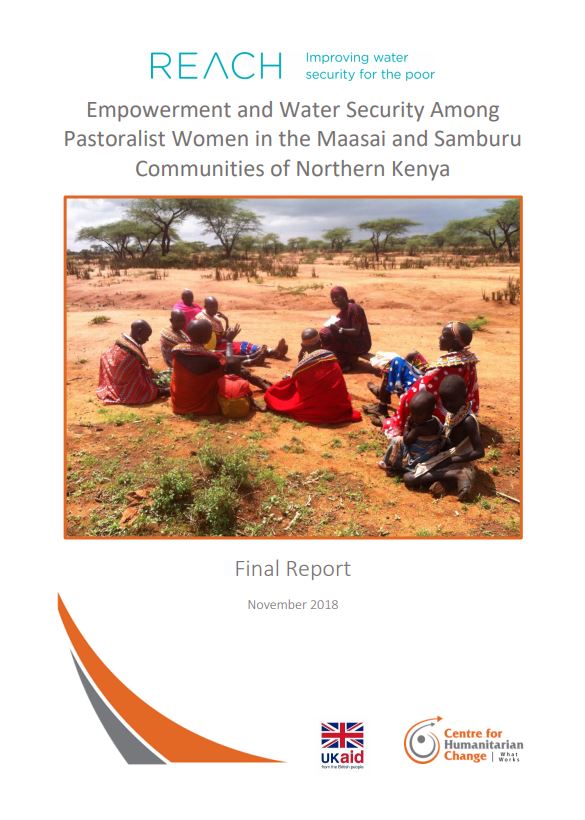The study explored questions around women, water and gendered power relations in Laikipia and Samburu counties of Northern Kenya using qualitative methods. It was based on the premise that one of the ways that women in patriarchal pastoralist communities are disempowered in relation to men is through the gendered dynamics of domestic and livestock water security. It also anticipated that the poor performance of local water security initiatives would be shown to be a further factor in women’s relative disempowerment.
The study has generated a wealth of granular detail about gender roles and responsibilities in relation to domestic water within the pastoral communities under exploration. The material helps deepen understanding about gender relationships within the household. The findings point to a need to revisit assumptions that equate responsibility for domestic water collection with the disempowerment of pastoralist women. For, in the study locations, women carry full responsibility for domestic water security and management and they also exert significantly more control over water collected for household use than men. Women are able to deny their husbands access to water they have collected because a man’s access to water within the family home is by consent, not by right. Thus, at the household level, female responsibility for domestic water is a source of some power, rather than a manifestation of disempowerment.

